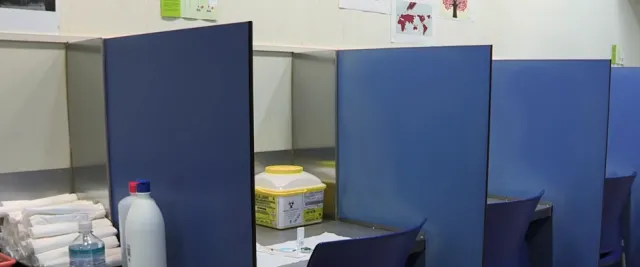European Commissioner for Home Affairs, Ylva Johansson will visit the Belgian National Institute of Criminalistics and Criminology (NICC), in Brussels today, accompanied by Alexis Goosdeel, Director of the European Monitoring Centre for Drugs and Drug Addiction (EMCDDA). The delegation will be welcomed by NICC Director-General, Dr Pierre Van Renterghem. The purpose of the visit is to gain an insight into the work of the institute and its state-of-the-art drug laboratory.
The NICC is a public research centre within the Belgian Department of Justice. It carries out forensic services for a wide range of national bodies (e.g. magistrate courts, other requesting judicial authorities) and undertakes criminological investigations. During the visit, NICC experts will outline ongoing challenges posed by the drug phenomenon today, including:
- cannabis plantations and drugs and driving;
- MDMA (ecstasy) production and drug-facilitated sexual assault cases;
- methamphetamine and ketamine — increase in popularity and polydrug use;
- production of new psychoactive substance (NPS), legislation and prevalence of use; and
- public safety concerns due to drug production waste dumping sites.
At the NICC laboratory, the guests will be shown samples of drug products, such as new psychoactive substances (NPS), and the latest high-tech drug testing equipment.
The EMCDDA has been at the forefront of the world’s efforts to monitor NPS for over 20 years and tracks the rapid emergence of these substances via the EU Early Warning System. With new substances from diverse chemical groups emerging rapidly, and often sold in combination with other drugs, the first step in responding effectively to NPS is their forensic identification.
European Commissioner Johansson said: ‘The need to identify and assess increasingly diverse sets of chemicals, and the costs of doing so, requires robust cooperation among EU Member States and increased sharing of chemical data, reference samples and expertise among laboratories. Europe would benefit from a central coordination platform, such as a virtual European Drug Laboratory, that would facilitate the exchange of knowledge, innovation and best practice in this area as well as inform policy-making and support the EU Drug Strategy. The concept of such a laboratory is one of the ideas currently being considered for the revised mandate of the agency, soon to be proposed by the Commission’.
Programme of the visit
www.emcdda.europa.eu/event/2021/12/visit-national-institute-criminalistics-and-criminology-brussels


















